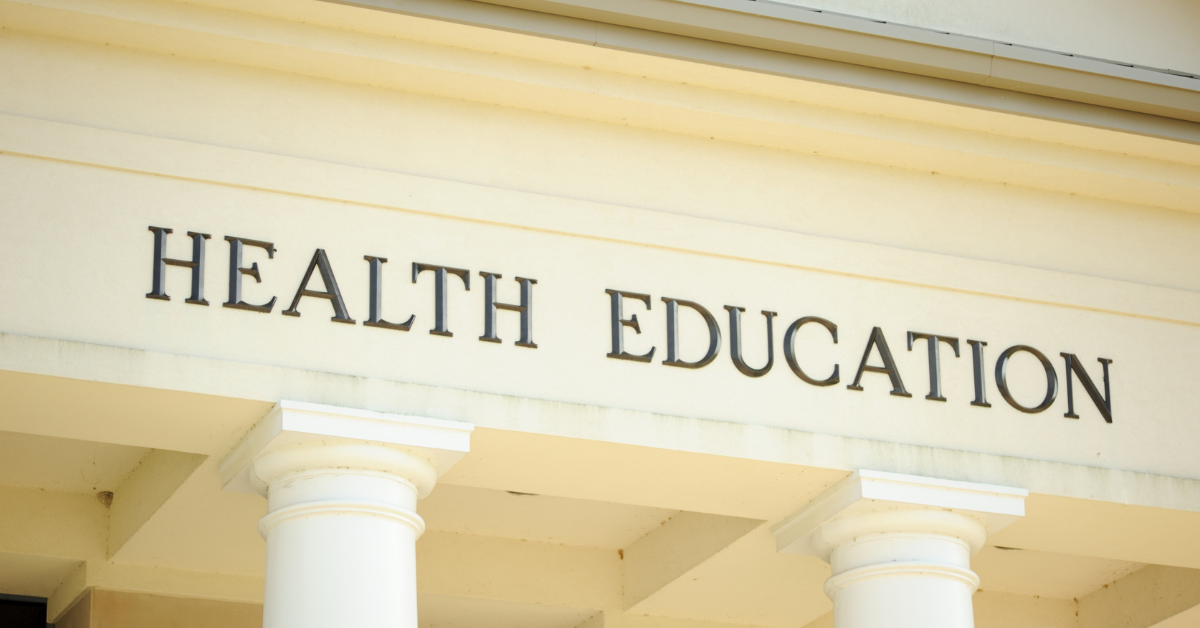With the upcoming election in the U.S., it’s crucial to consider how public health policies affect us, what barriers we face, and how we can use our votes to support a healthier future for all.
As we celebrate National Health Education Week, I want to highlight the critical connection between health education and nutrition. Food is fundamental to our well-being, yet many of us don’t fully understand how the choices we make every day impact our long-term health. But through education, we can empower ourselves to make better decisions, manage chronic conditions, and improve our overall quality of life.
How Health Education Empowers Us Through Food
Health education plays a vital role in helping us make informed decisions about what we eat. Understanding how different foods impact our bodies can lead to improved energy, better disease management, and even enhanced mental and emotional well-being.
But it’s not just about knowing what to eat. It’s about understanding why certain foods are better for us, and how small, consistent changes in our diet can lead to significant health benefits over time.
- A balanced diet is foundational to good health. We need a mix of carbohydrates, fats, and proteins to fuel our bodies and ensure we’re getting the vitamins and minerals necessary for optimal functioning. A lot of misinformation exists around eliminating certain food groups, but the truth is, balance is key. Educating ourselves on how to create well-rounded meals can help us meet our body’s needs and maintain a healthy lifestyle.
- Learning how to read food labels is another essential skill. Often, we’re influenced by marketing that makes unhealthy foods seem like the better choice. By understanding what’s really in the products we buy—looking at ingredients, sugar content, and nutritional information—we can make more informed choices that align with our health goals.
- Our bodies change as we age, and so do our nutritional needs. From childhood to older adulthood, we require different nutrients and different amounts of food. Health education helps us understand these changes so we can adjust our diets accordingly, whether we’re raising children or managing our health in older age.
These core concepts are just a starting point. Health education gives us the tools we need to make daily decisions that positively impact our health and prevent long-term issues like heart disease, cancer, and diabetes.

Barriers to Health Education
Unfortunately, not everyone has equal access to health education. Social determinants of health (SDOH) refer to non-medical factors that influence health outcomes, such as the conditions in which people are born, grow, live, work, and age. These include socioeconomic status, education, access to healthcare, and neighborhood environment, all of which can significantly impact an individual’s quality of life and health risks.
Health education plays a major role in addressing SDOH by promoting awareness and empowering individuals to make informed health decisions. Educators can advocate for equitable access to resources, teach preventive care strategies, and guide populations in overcoming barriers related to their social environment.
This is also where public health initiatives become key. By focusing on underserved communities and making health education more accessible, we can help level the playing field. That’s why, as we head into election season, it’s important to consider how public policies affect access to health education and healthcare.
The Role of Public Health in Elections
We’re currently entering a big election year in the United States, but, really any election—local or national—should be viewed as incredibly important. Public health policies are directly influenced by our elected officials. Whether it’s funding for nutrition programs, school meal initiatives, or healthcare coverage, those we vote into office have a significant say in shaping public health initiatives.
Before you head to the polls, it’s essential to do your homework. Research the candidates—both local and national—and understand their positions on health-related issues. Dig through your candidates’ websites and look for the following:
- Have they supported funding for health education programs?
- Do they back policies that make healthy food more accessible?
- What is their stance on healthcare, particularly for those managing chronic conditions?
If you’re unsure where to start your research, there are several resources that can help you understand where candidates stand on public health issues:
- Ballotpedia (ballotpedia.org): A great resource for learning about candidates at all levels of government and their positions on healthcare and public health policies.
- The Kaiser Family Foundation (kff.org): Offers in-depth analysis and nonpartisan information on health policy and healthcare reform.
- Vote Smart (votesmart.org): Provides detailed voting records, so you can see how your elected officials have voted on health-related policies in the past.
Taking the time to research these issues and the candidates’ positions on them can help ensure that your vote supports public health initiatives that align with your values.
Empower Yourself Through Education
The more we educate ourselves about health, nutrition, and the policies that shape access to these resources, the better equipped we are to make informed decisions. Whether it’s learning how to read food labels, or figuring out how to adjust our diets as we age, knowledge is power.
And that power extends beyond our own plates—it reaches into our communities and our political system. By voting for candidates who support public health and healthcare access, we can help ensure that everyone has the opportunity to live a healthy, informed life.
Take a moment this National Health Education Week to reflect on the role education plays in your health journey, share information with people in your network, and don’t forget to make your voice heard this election season.



0 Comments